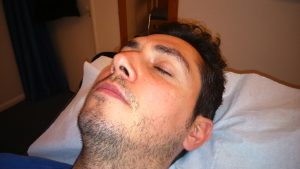Stress and anxiety and depression are issues that can affect many of us at different times in our lives. Those who tend towards anxiety tend to live in the future, constantly imagining desperate and unpleasant scenarios that might happen at some stage. Those who are prone to stress can be said to live too much in the present, feeling themselves constantly overwhelmed by events around them. Those who are suffering from depression can often said to be living too much in the past, their current happiness depleted by events that have gone before.
Emotional problems, such as stress, anxiety, constant worry, and depression can all respond very well to acupuncture. Addressing these can also help with some of the other problems that can be associated with them, such as sleep issues, low energy, and digestive concerns.
Acupuncture for anxiety, stress, and other emotional problems focuses on calming the Mind through working on the Body. The theories underlying traditional Chinese medicine all recognise the continuity of Mind and Body. We are all aware of how certain emotions can express themselves physically, whether it be an unsettling sensation in the abdomen if we are apprehensive about something or else tension in the neck-and-shoulders and possibly even a headache if we feel stressed or frustrated.
These acupuncture treatments are intended to be unobtrusive and focus on the physiology of the patient, often avoiding any in-depth questioning. There is little need to get patients to speak about their experiences. Instead with acupuncture for anxiety or stress, the practitioner focusses on the body, and the practitioner may also provide recommendations regarding diet, relaxation techniques, & exercise.

Often it is the calmness engendered by working on certain acupuncture points that enables people to look at their situation from a fresh perspective and to escape the trap of negativity. Recent research (Quinton 2012) has shown that acupuncture can even be effective in the management of patients suffering from major psychiatric disorders.





